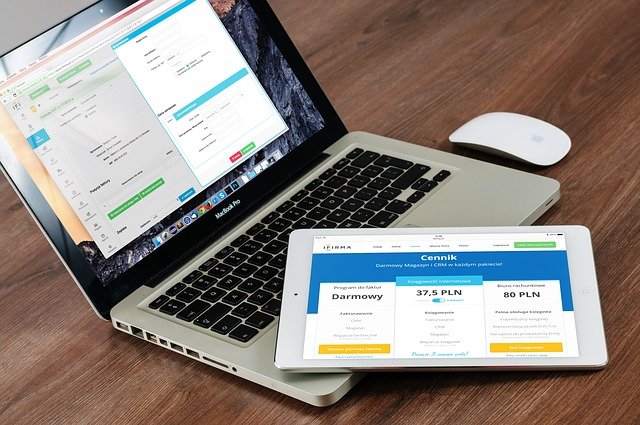88% of consumers will shy away from visiting a website after having a poor user experience. That’s why a well-designed website is essential. It ensures that you not only generate leads but also turn them into conversions. From your site’s responsiveness on different devices to how it represents your brand, every little detail of your website’s design will dictate your ROI.
This is why it is vital to hire a reputable web design company. The right company will walk you through the entire design process, while also offering their expertise in commonly overlooked areas. More importantly, you need to read your web design contract carefully. The contract dictates the intricate details of your relationship with the agency you are working with. The question is, what should you focus on before signing the dotted line?
Here are a few essential elements to prioritize before signing a website design contract:
Project Scope and Expectations
You need to understand what you are walking into before signing the contract. For instance, what kind of services do you expect from the company? They could be designing your entire website or just designing a specific feature. You could either prefer custom features or template design elements. The project scope can vary widely; the time it takes to build a website can take anywhere from under 10 hours to over 60 hours.
Make sure that the project scope and expectations are clearly defined in your web design contract. Having the scope and project expectations in writing ensures all parties are on the same page. The contract should also include details about your responsibility in the relationship. Will you need to pay extra for hosting? Will you be required to provide images for your site? Spelling out all these issues from the onset paves way for a frictionless relationship. If a specific aspect of the web design contract doesn’t sit well with you, you can raise the issue before starting the project.
Project Cost and Pricing Model
When negotiating your website design contract, you should seek out a custom pricing package rather than a preset one. Your project may need a tailored approach, and a preset pricing package may omit services you need or cause you to pay for services you don’t. Ask your web design company to offer you a tailored estimate of your project’s cost. Their invoice should provide detailed information on how much each part of the project will cost. If you are confused about a certain part of the invoice, don’t hesitate to ask questions about it.
Pricing models differ from one web design contract to another. While one company may charge hourly for their services, others will place a price tag on the entire project. The ideal pricing model for your business depends on your budget. You should also learn whether the price is fixed or based on a sliding scale. A sliding scale signifies that you could have to pay for extra costs and services that were unaccounted for.
Finally, ask about maintenance costs. This is an important additional cost that may be in the best interests of your company long-term. Resist the urge to default to the cheapest web design company; the value you get from their services matters more than just the price tag. Besides, there are many more ways to reduce costs before or after signing the web design contract.
Feedback and Revision Process
It’s not reasonable to expect that web designers will deliver your ideal site right away. With constructive feedback and ongoing refinements, however, you can watch your dream website become a reality. This is why you must learn about the feedback and revision process of your web designer. Understanding how they gain feedback and implement corrections will help you gauge their responsiveness.
How many revisions does the website design contract allow you? What’s the easiest way to communicate with them about the revisions? Will these revisions affect project delivery timelines? Understanding how your designer handles revisions before signing the web design contract protects you from unwelcome surprises. It will also help you know whether you will need to pay extra when you exceed a specific number of revisions.
Project Completion Timeline
More than two-thirds of businesses compete primarily based upon customer experience. If your competitors are in the ‘two-thirds’ club, getting your website up and running fast should be a priority. The longer your website stays in production, the more potential customers you stand to lose. Consult your web designer about how quickly you can reasonably expect to have your website up and running.
If your site development is time-sensitive, be sure to communicate this with them. Ask about what you can do to reduce the project delivery timeline. In some cases, project delivery timelines are extended by poor communication between both parties. It may also be caused by the client taking longer to provide the necessary details to keep the process moving. Read the web design contract well and do your part to keep the project developing swiftly.
Post-Service Support

You will still need web designers long after your website is done. From simple maintenance issues to advice on hosting and related services, there are a lot of ways having ongoing access to a web designer could benefit you. The question is, what post-design services will your designer provide?
For instance, you might need a bit of training on how to use your CMS. Otherwise, you might have to rely heavily on your web designer to update your web content. The frequency of web maintenance and costs, along with these extra services, should be included in the web design contract. This is why you need to conduct enough research before signing your website design contract.
Consulting past clients of your web design agency could help you learn how to navigate the post-design phase of your working relationship. Ask the reference what they would change about their current situation. You can also inquire about how effective the agency is at coming through for its past clients.
Get Comfortable Before Signing the Dotted Line
You are entrusting your web designer with a huge part of the future of your business. For this reason, your web design contract needs to protect you from unforeseen circumstances, while also letting you know what to expect. Be sure to only sign the contract once you are completely comfortable with the company and its services. It’s always possible to switch agencies mid-project, but this can be time-consuming and costly. Choosing the right company the first time is always best.

